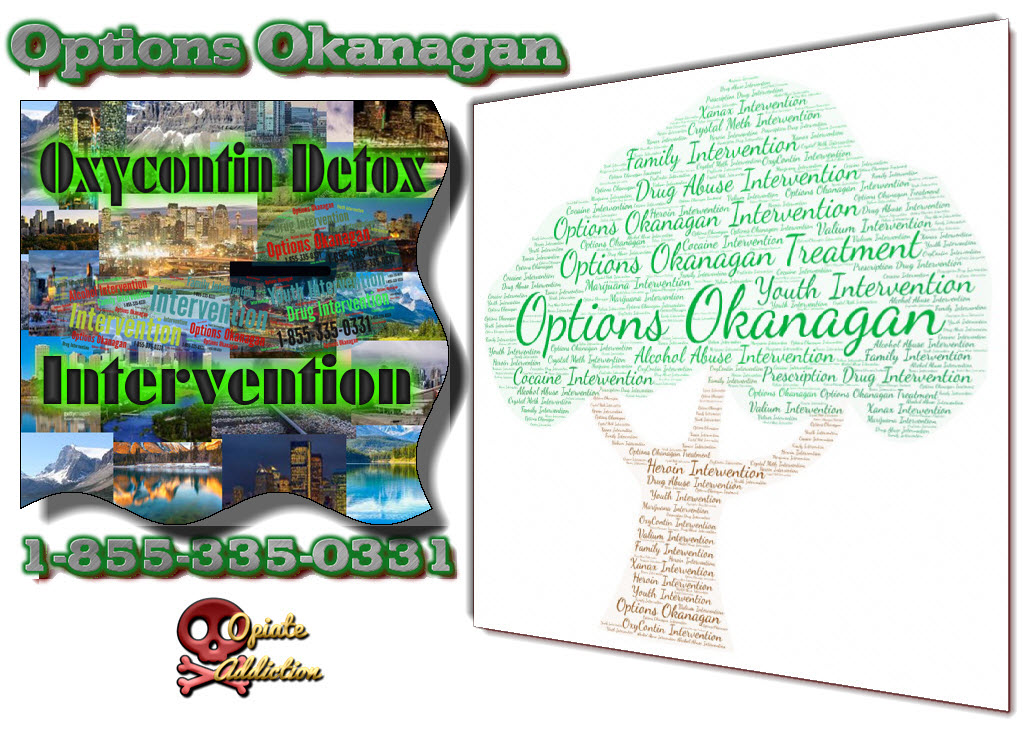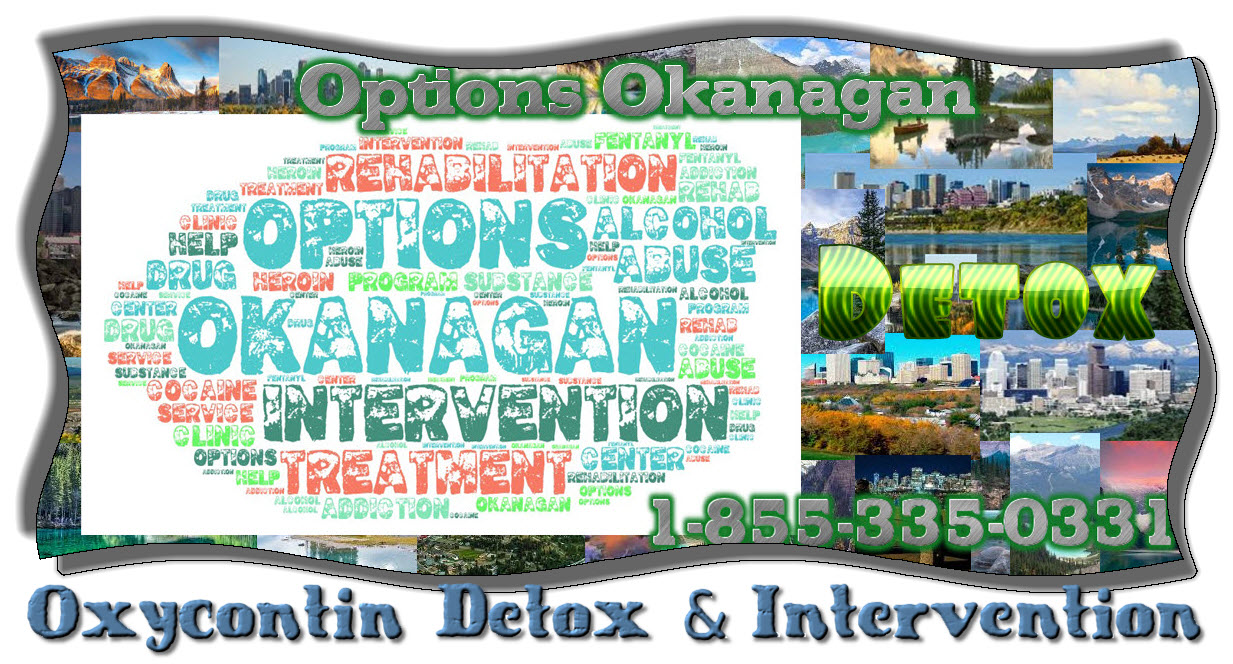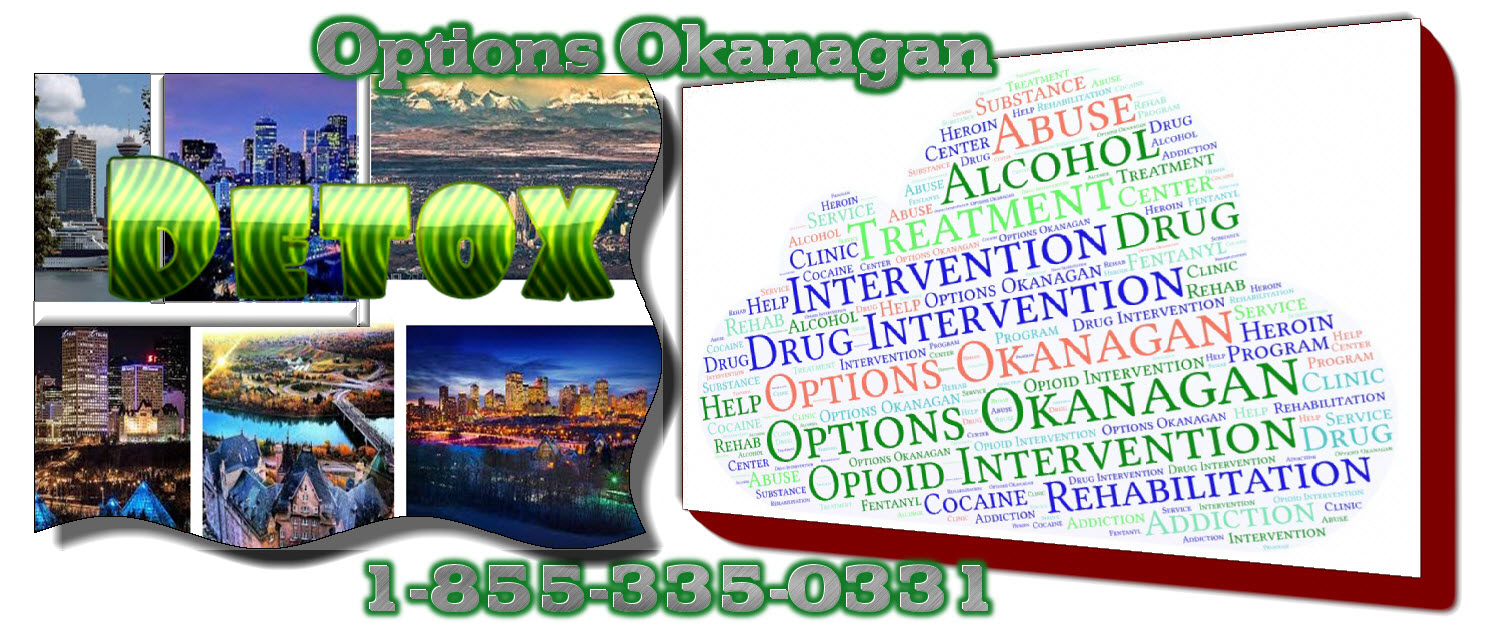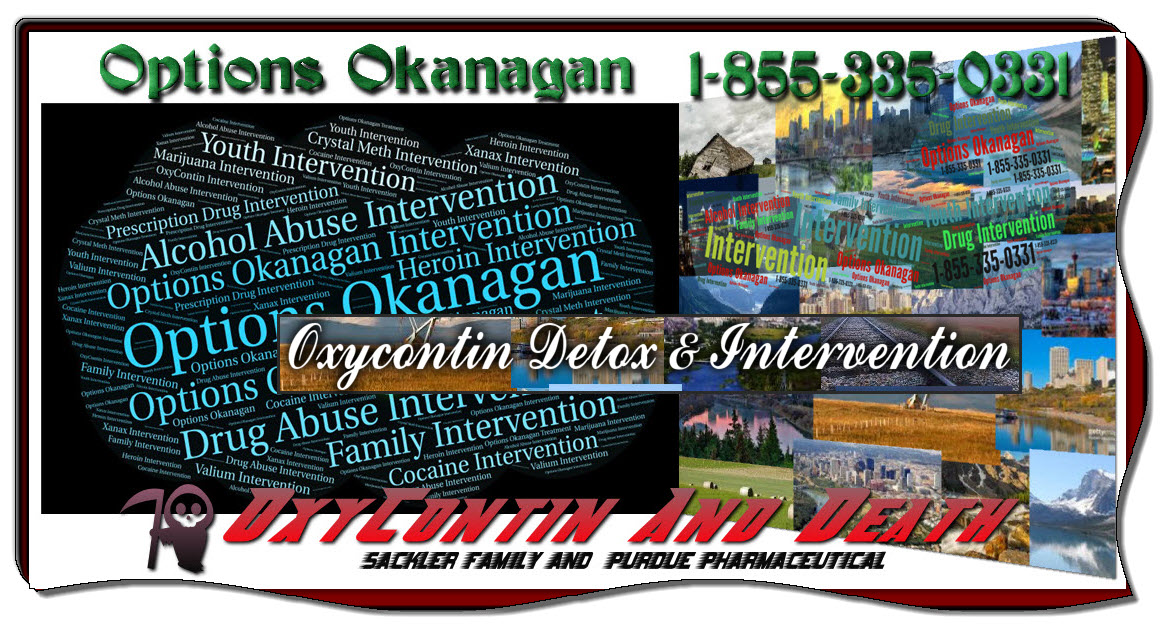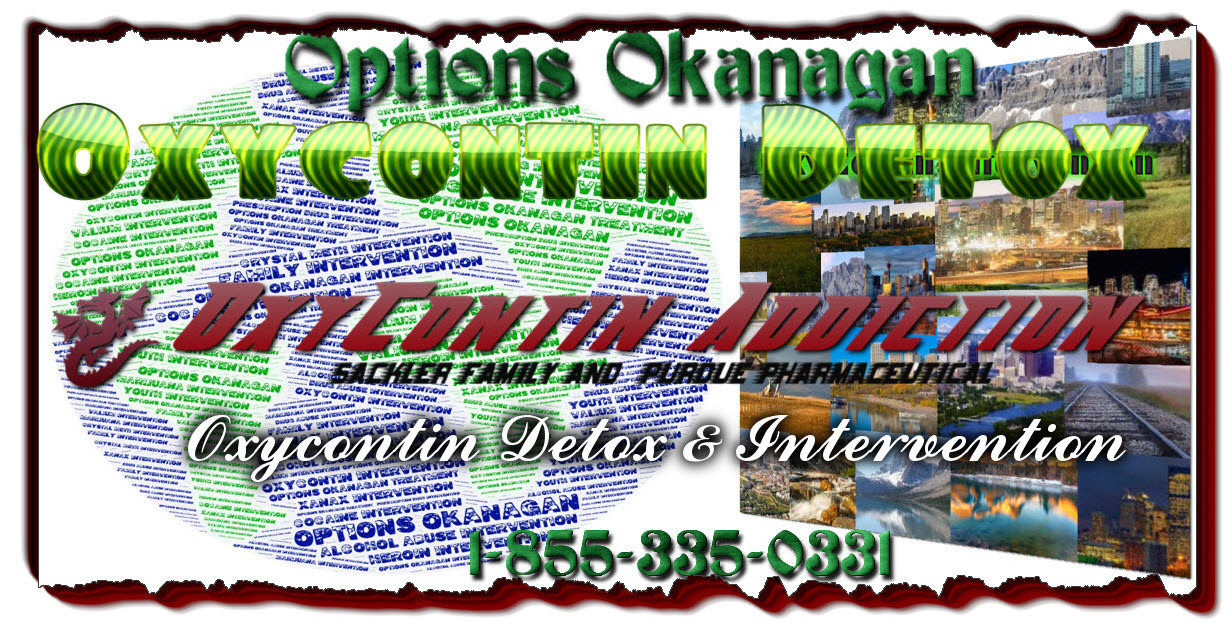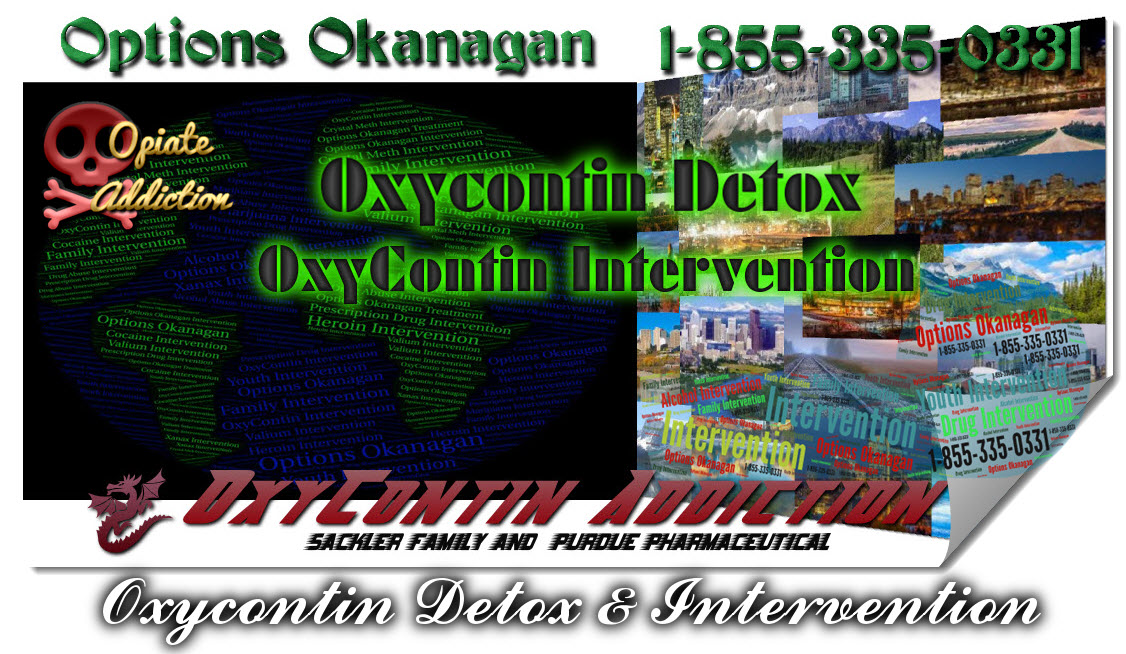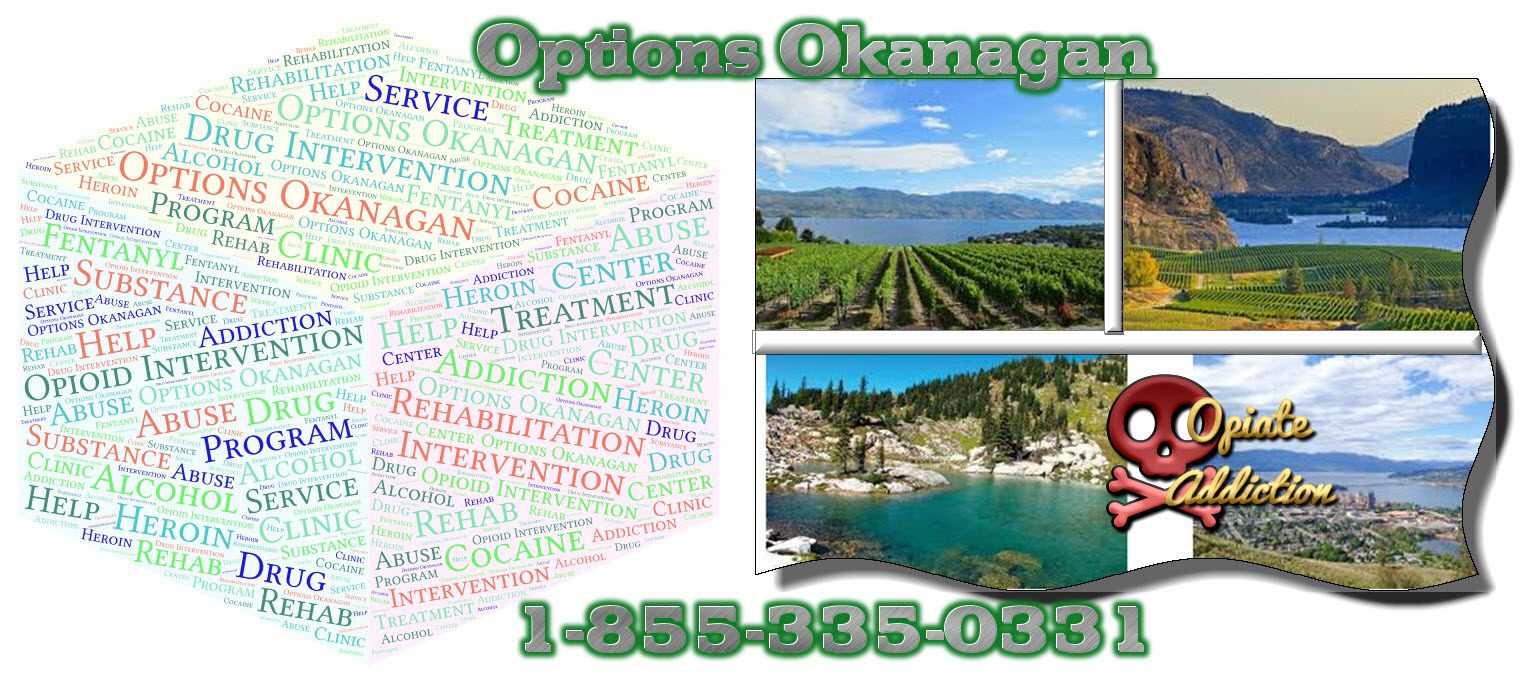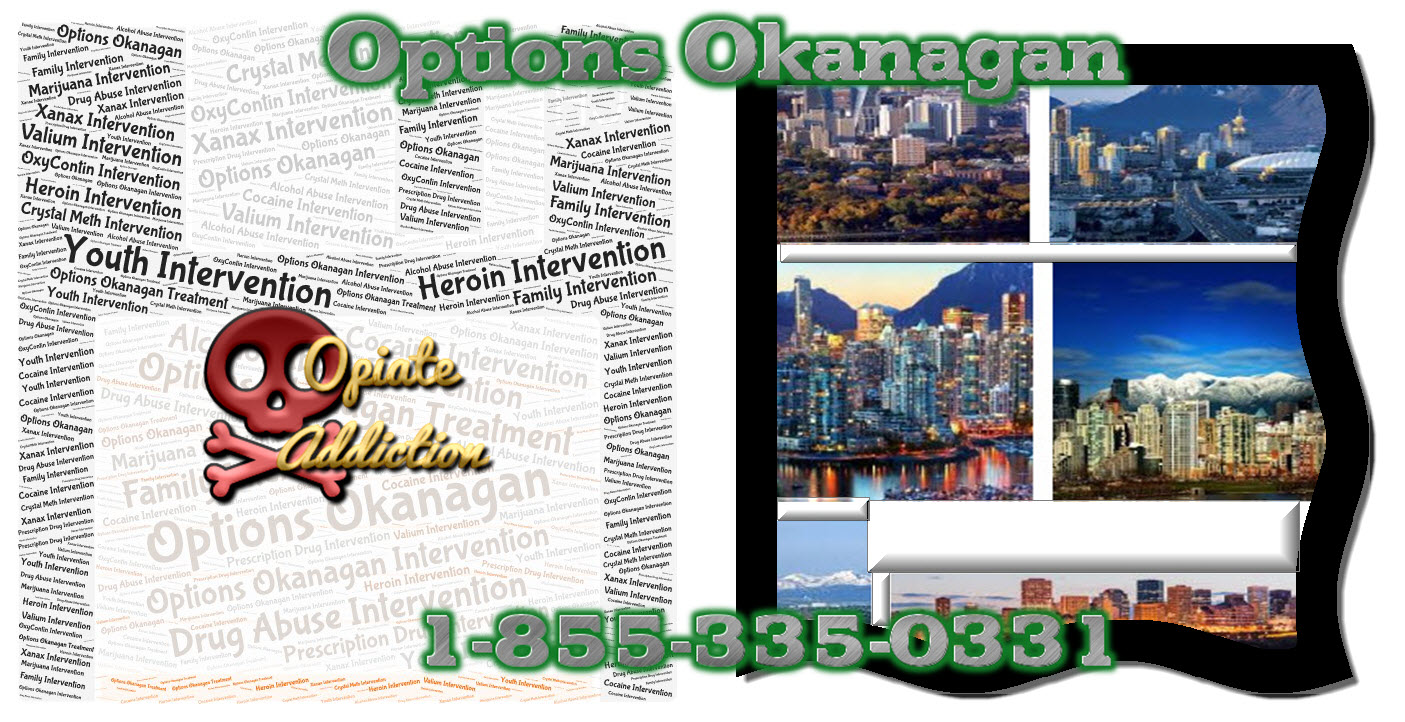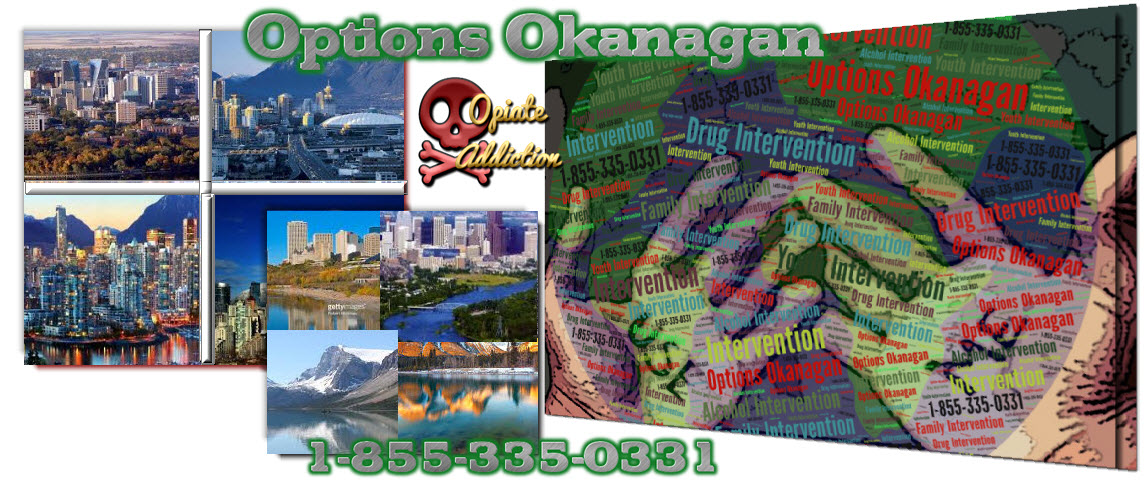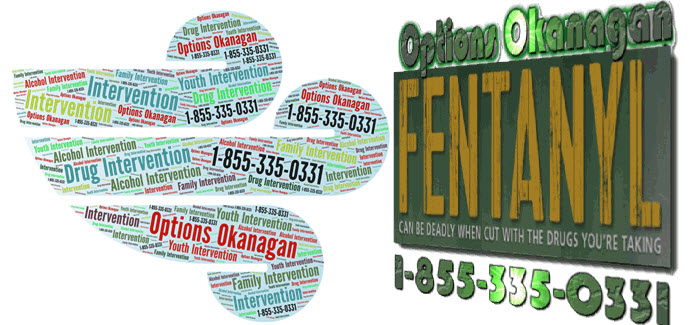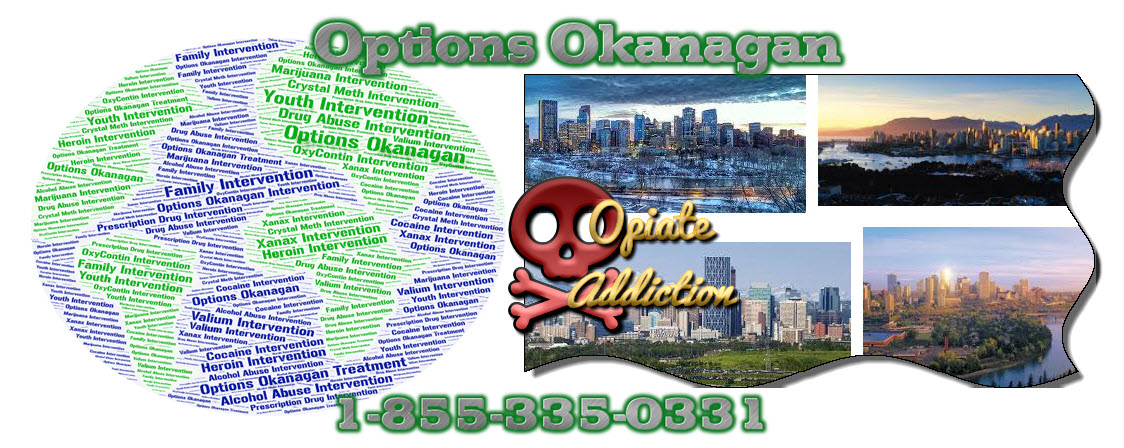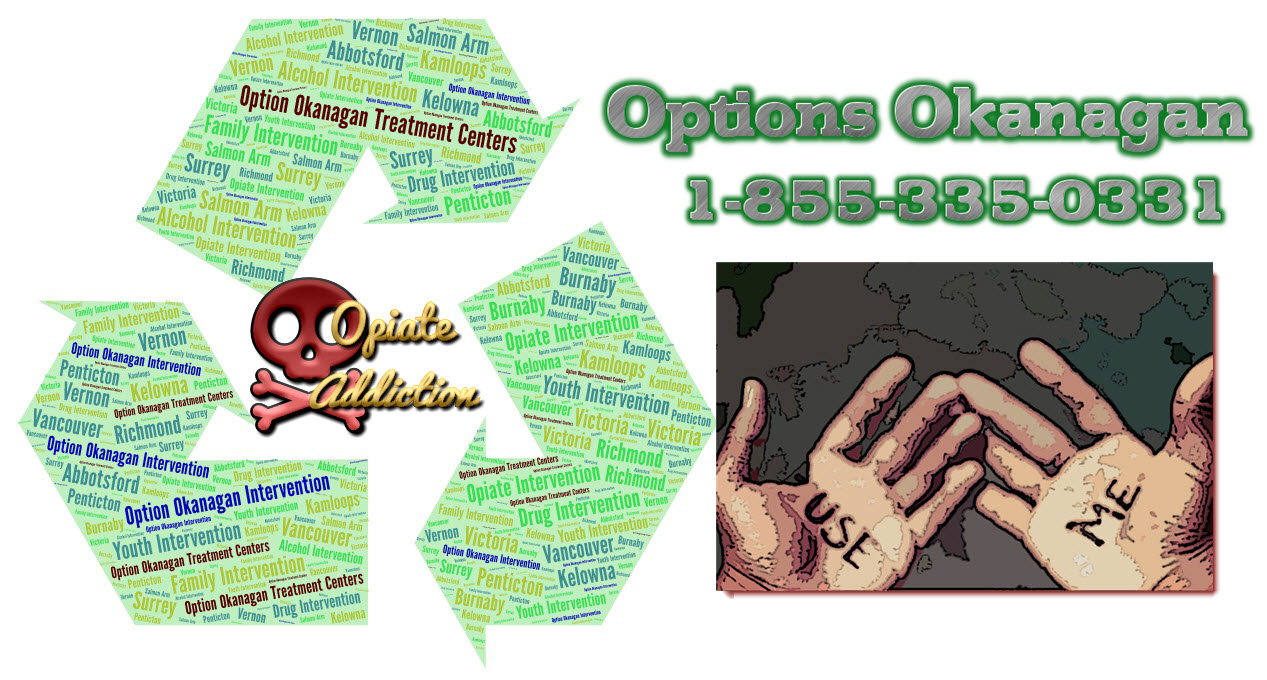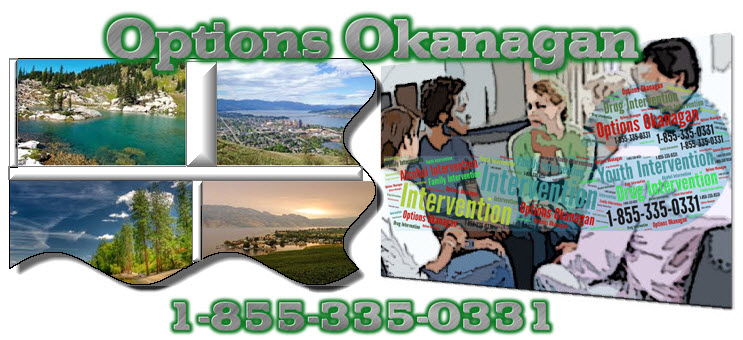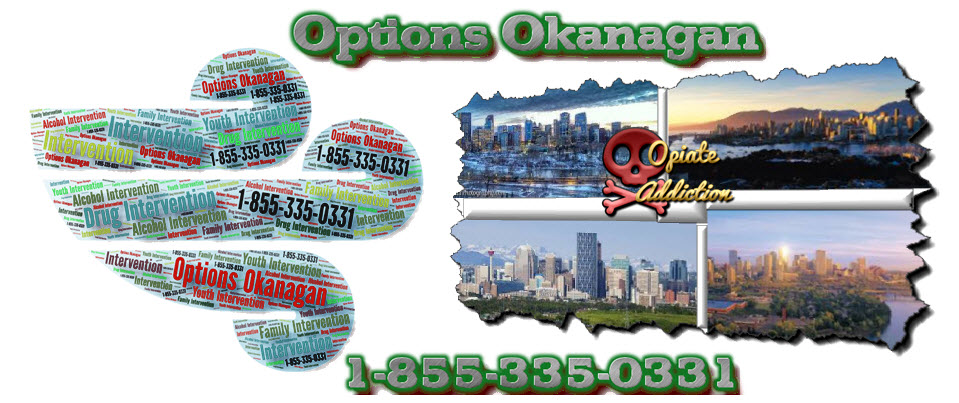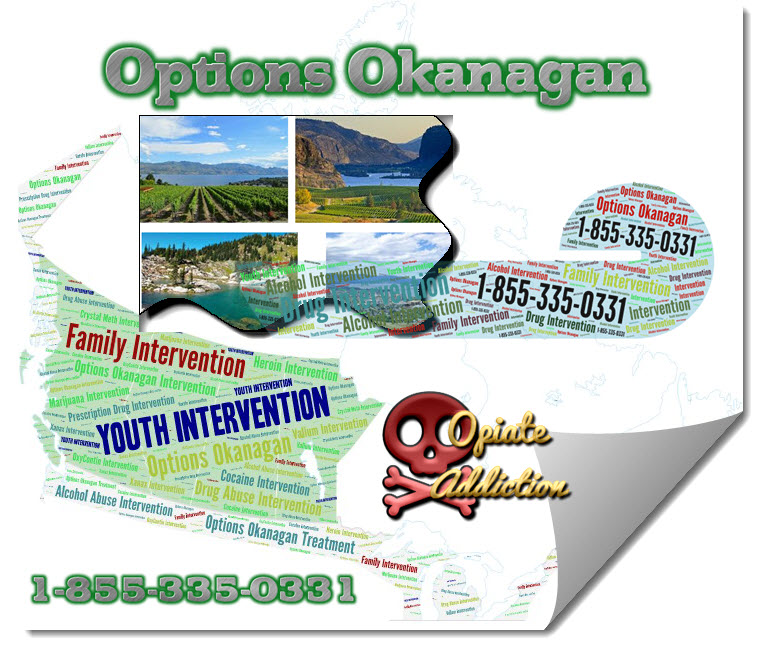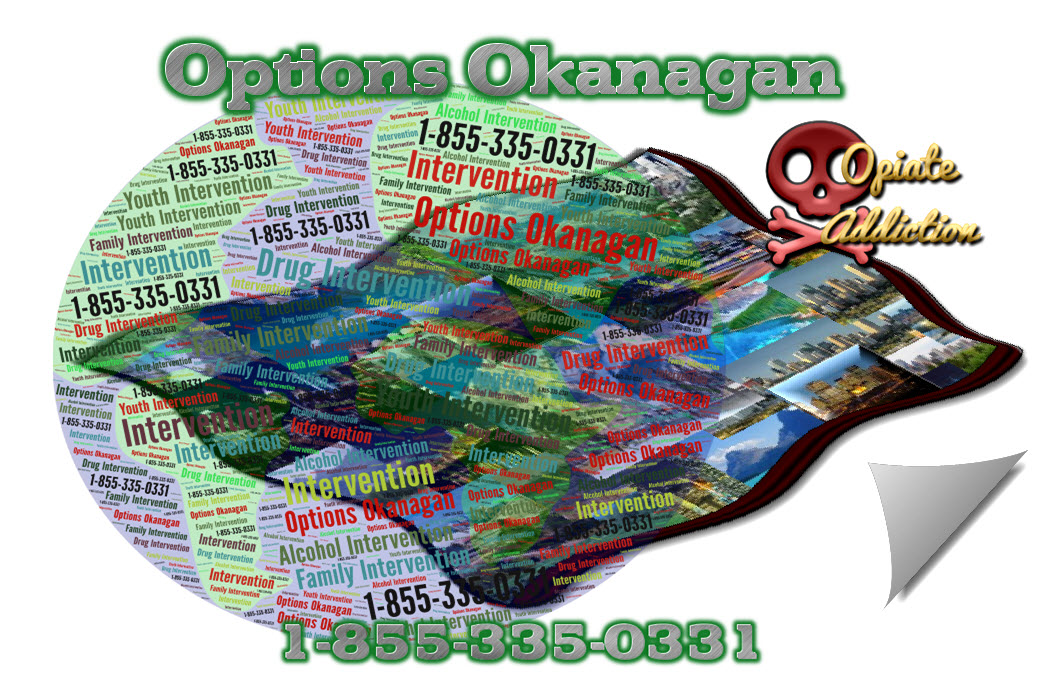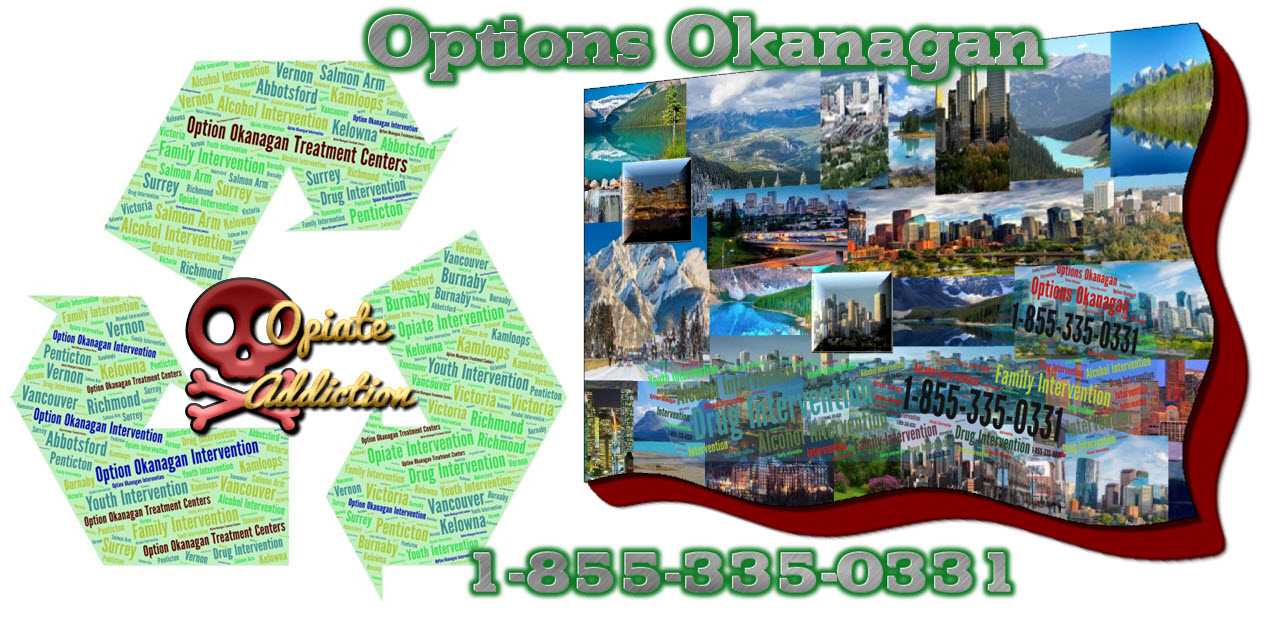Replacement therapy for opiate detox – Drug Opiate interventionists in British Columbia and Alberta – Options Okanagan Treatment Centers in Kelowna, British Columbia treating drug, opiate, fentanyl, heroin and alcohol addiction and recovery.
Opiate Detox In BC and Alberta
Opiate Detox Replacement Therapy
While medical staff at drug rehabilitation centers may administer many different types of medication to ease drug or alcohol withdrawal symptoms in those suffering from addiction, some detox facilities make use of a process termed ‘replacement therapy’. Replacement therapy makes use of a less addictive opiate to interact with opiate receptors in the brain eliminating the dopamine ‘rush’ that causes addictive euphoria. This type of medication is always given under strict supervision and carefully monitored and controlled by qualified medical staff.
The 2 most common medications used in Replacement Therapy are methadone and suboxone.
Methadone In BC and Alberta
Even though methadone is as addictive as any other opiate, it has a longer half-life of up to 72 hours. Methadone is typically administered in small doses to opiate addicts because of its long action on the brain. The treatment helps to avoid severe withdrawal symptoms. During the detox process, the addict is slowly weaned off the medication until the body is completely clear of all opiates.
Suboxone In BC and Alberta
Suboxone has a 72-hour length of action and in the treatment of opiate addiction, it has been proven to be highly effective. It contains the opiate antagonist ‘naltrexone’ and works on 2 levels:
1. The opioid characteristics of suboxone bind to the opiate receptors of the brain which helps to prevent severe withdrawal symptoms;
2. The naltrexone antagonist in suboxone blocks the ability of the opiate from producing euphoric effects in the user by creating a ceiling effect.
Similar to treatment with methadone, the use of suboxone is slowly tapered off until all opiates have been cleared from the body. Depending on the needs and personal preferences of the addict, the use of replacement opiates during detox therapy can be highly effective. Because the process involves a slow tapering off process, treatment can take up to 21 days.
Traditional Opiate Detox Therapy
With traditional opiate detox methods, drug withdrawal is allowed to take place naturally without the use of any additional opiates. However, this is not purely a “cold-turkey” method as medications such as sedatives and blood pressure medicine can be administered to help manage severe symptoms associated with withdrawal such as insomnia and anxiety.
Traditional opiate detox can take anything from 5 to 14 days depending on the severity of the case. The ultimate goal of any detox program is to remove all traces of drugs from the body which incorporates the use of additional medications to reduce anxiety and facilitate sleep in severe cases.
Rapid Opiate Detox
This type of opiate detox involves a medical process that places the addict under general anesthesia in order to administer an opiate antagonist that results in immediate withdrawal. Anesthesia is necessary because there is no gradual progression of withdrawal in this process and it can be quite jarring for an individual to experience sudden and full opiate withdrawal while conscious. Rapid opiate detox is always administered in a hospital setting where constant monitoring and supervision ensures the safety of the patient and medical complications can be avoided. The treatment, under constant supervision, is usually completed within 48 hours.
Options Okanagan Opiate and Alcohol Treatment Centers in Kelowna, Salmon Arm and Vancouver, British Columbia – Men and Women are recovering and healing from Alcohol and Drug Abuse at our treatment center here in the Okanagan right now.
Our unique and distinctive Opiate Drug and Alcohol treatment program allows men and women to come in from Calgary as well as Edmonton as we offer airport pickup.
Numerous clients come to us from Vancouver, Calgary and Edmonton and other locations in Alberta and even other provinces for Opiate addiction treatment, heroin drug treatment, many other drug and alcohol addictions for rehabilitation because of the uniqueness of our treatment center.
Our Opiate Treatment Location:
Options Okanagan Drug and Opiate Treatment Center
551 Sherrydale Crescent, Kelowna, British Columbia, V1V 2E6
Toll Free Phone Number : 1-855-335-0331

